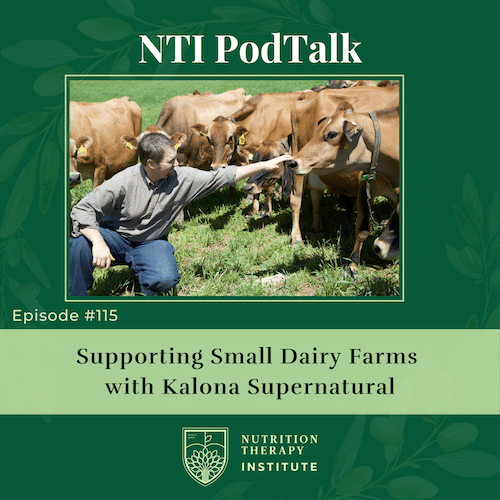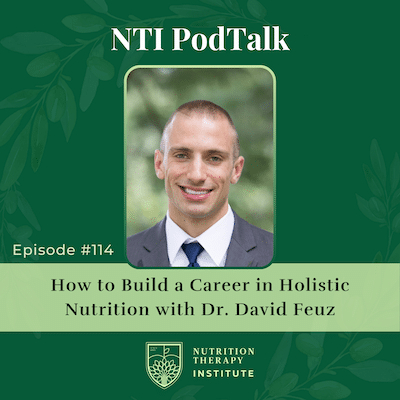
Share this post!
A Personal Story Of Cognitive Decline
We are living in a fascinating time in history. The internet gives individuals easier access to research, more doctors are taking a functional, all-systems approach to addressing disease, and technological advances in medicine are the most impressive they’ve ever been. Yet the rates of lifestyle-related health conditions and autoimmune diseases are on the rise.
When I was a kid, I watched my mom advocate for herself and attempt to address her neurological condition with alternative methods while making lifestyle choices that thwarted her efforts. She had a strong sense that her seizures were aggravated by a drop in hormones, as they occurred like clockwork during her monthly cycle. This was the late eighties, and the prevailing recommendation from doctors involved a prescription with debilitating side effects. It’d been sixty years since the original Ketogenic Diet for treating epilepsy was developed, but most of us still firmly believed in a low-fat diet for all-around optimal health.
The event of my mom’s death gave me a lucid understanding of my own mortality. As a youngster, I developed a fear and a bone-deep sorrow that I would eventually lose everyone I loved, and that the timing of each loss would be entirely out of my control. Traumatic events often open up a yearning to understand “why.” I became insatiably curious, and after a couple of career fits and starts as an adult, I decided to study physiology, whole foods nutrition, and cooking for wellness.
A year after I moved to Denver to study, my sister told me over the phone that our dad had been diagnosed with Alzheimer’s disease at a VA clinic. Looking back, it’s easy to recognize how the disease progressed gradually over many years followed by a steep decline over the last several months that he lived.
The following eighteen months were like witnessing a speeding freight train, on fire, with failing brakes. Just as soon as one infection was under control, another would crop up, or there’d be a different, more serious challenge to address. Along with the nurses and caretakers of the facility where he lived, my sister bore the brunt of his care. I flew home every few weeks to help. Our dad went from a mostly independent life in his two-story home to spending six weeks in the hospital, to ultimately living between his bed and a wheelchair. He needed help dressing, using the bathroom, finding words, and combing his hair. Very fortunately, he was able to pay for full-time care at the end of his life. Annually, several millions of family members and friends provide unpaid care to people with dementia. In 2019, 18.6 billion hours of unpaid care were provided for dementia patients at an economic value of $244 billion.
For years we watched our dad work hard to hold his decline at bay. He’d always been incredibly proactive with his heart health, and he took care to communicate to us kids that heart disease was the cause of death for most of the men of his family line. After his aortic heart valve was replaced, he had about ten good years of vitality before he developed atrial fibrillation and eventually endocarditis, then Clostridium difficile (C. diff) as a result of the antibiotics, then dysphagia and a few bouts of aspiration pneumonia as a result of miss-swallowing. Miss-swallowing happens when muscles in the mouth and throat fail to coordinate. Instead of traveling through the esophageal tube down to the stomach, food and liquid travel down the trachea and into the lungs, causing infection and requiring more antibiotics to treat.
My dad’s cognitive decline was undoubtedly tied to his heart health, which was rooted in genetics and aggravated by lifestyle. With a drive to understand what might have happened to him and to prevent it from happening to me and anyone else I loved, I dove into learning the pathology of dementia and how the health of our brains is affected by genetics and epigenetics. Our genetic code may be fixed, but whether or not our genes are expressed over time is dependent upon our environment. This is the study of epigenetics.
No longer can we consider our destiny to rest solely at the fate our genes. In other words, genetics do not have the final say in whether or not we develop disease. This is true across the vast spectrum of health conditions, from depression to dementia. As well as our genes, early life experiences do not have to dictate the results of our adult lives. Instead, we can use them as a driver to pursue what we all crave at a cellular level: to connect, to love, and to experience freedom, uninhibited joy, and vibrant health.
I thought it’d be helpful to share this story in case you, too, have someone in your life affected by cognitive decline. Even if you don’t, I believe that it’s necessary for all of us to prioritize our brain health. The sooner we get serious about it, the better.
The upcoming blog series will focus on brain health and dementia, one of the fastest growing health epidemics of our time. In three parts, you’ll learn a bit of how brain health is connected to cardiovascular, gut, and hormonal health, and I’ll give you tips on how you can begin making positive changes in each of these areas right away.
We’ll touch upon the importance of a long-term strategy for optimizing cognitive health and preventing dementia. This is not a comprehensive guide or suggestive of treatment of any kind. It’s an introduction. My hope is that as you read this, you begin to feel empowered to optimize and care for your cognitive health long-term.
First, let’s summarize conventional treatments for dementia.
Conventional Treatment For Dementia
To this date (May 2020), Alzheimer’s disease has a 99% drug failure rate. The FDA has approved two classes of drugs called cholinesterase inhibitors (brand names Aricept, Exelon, Razadyne) and NMDA receptor antagonists called memantine (brand name Namenda). Each works by either inhibiting or antagonizing a single mechanism that have been identified in compromised brains. While they may lessen the symptoms of dementia and cognitive decline for a few years (at best), neither drug addresses the root cause of the problem. Patients and their families are not typically given any direction on how to modify their lifestyle to potentially mitigate any ongoing damage.
A new class of Alzheimer’s disease drugs designed to prevent formation of the hallmark amyloid plaques have succeeded in doing just that; however, patients participating in studies did not improve and in many cases, their condition worsened. [1] Clinical trials are currently testing vaccines for Alzheimer’s disease. As of late 2018, researchers have estimated the total cost of developing new Alzheimer’s drugs to be $5.7 billion, which is twice the average cost of all other drug development. And still, the rates of dementia are rising.
As the field of epigenetics expands, we’ve come to see the impact of lifestyle choices on all aspects of our health. How much of our risk can be tempered by lifestyle?
Epigenetics And A Preventive Approach
Epigenetics is the study of how environment affects genetic expression. What we eat, the company we keep, our thoughts, our sleep quality, where we live, and how much we exercise are a few factors that shape our overall environment.
Nowhere is a preventative, self-advocative approach more critical than when it comes to our brains. We’ve seen how the allopathic approach to cognitive decline has fallen short while rates of cognitive-related conditions have soared. By 2050, an estimated 15 million Americans will be living with Alzheimer’s Disease. Research demonstrates that reducing risk factors associated with lifestyle by 10% could prevent nearly nine million of these cases, and that Alzheimer’s disease begins in the brain decades before the first symptoms appear. [2]
What does that mean? It means that we need to be investing in the health of our brains now.
Stay Tuned In For More
While it may seem daunting to tackle something as substantial as brain health, it’s about making small changes and forming daily health-positive habits for long-term benefits. In an upcoming 3-part blog series, I’m going to explain how the health of the brain is tied to heart, hormone, and gut health and give you tips for how you can start supporting each of these systems right now.
References:
[1] Masconi, Lisa, The XX Brain: The Groundbreaking Science Empowering Women to Maximize Cognitive Health and Prevent Alzheimer’s Disease, Penguin Group (USA) LLC., March 10, 2020, Page 23 [2] Masconi, Lisa, The XX Brain: The Groundbreaking Science Empowering Women to Maximize Cognitive Health and Prevent Alzheimer’s Disease, Penguin Group (USA) LLC., March 10, 2020, Page 18About the Author:
Jacqui Gabel is a graduate of NTI. She is passionate about child nutrition and health equity. She cooks privately for individuals and families in the greater Denver area and creates content for Sticky Fingers Cooking. She’s happiest with her hands in the dirt, behind a camera, at a concert, or in a noisy, crowded kitchen. Visit Real Food Desire for more, including an eBook for additional tips on how you can optimize your long-term cognitive health.
Image: You’ve got your work cut out for you. by Hans-Peter Gauster is free for use by Unsplash
Learn About Becoming A Nutrition Therapist Master
Share this post!


















